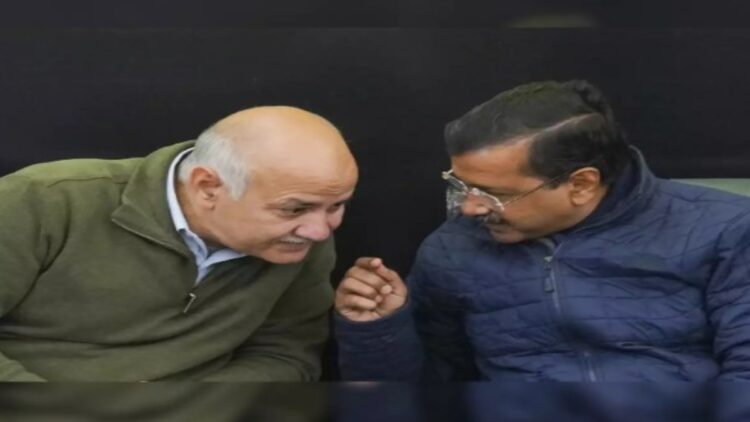Arvind Kejriwal and Manish Sisodia
After the LG’s address on Tuesday, the second day of the Delhi Assembly session, Chief Minister Rekha Gupta presented the first report of the CAG related to the alleged liquor scam in Delhi in the assembly. Meanwhile, the opposition MLAs created a ruckus during the LG’s address after which all 22 MLAs were suspended from the House and after that 21 MLAs were suspended for three days. In such a situation, the CAG report was discussed in the absence of the opposition.
Assembly speaker Vijendra Gupta said before starting the discussion on the CAG report that the previous government had tried to hide this report. He said that it has been revealed in this report that the government has suffered a loss of 2,026.91 crore due to changes in Delhi’s liquor policy.
Now know what are the revelations in the CAG report …
According to the CAG report, due to the liquor policy of the government, the Delhi government received a huge revenue loss of Rs 2,002.68 crore.
Rule 35 of Delhi Excise Rules, 2010 was not implemented in the new liquor policy.
The government issued a license without checking the required criteria such as bankruptcy, audited financial statements, sales data and wholesale price declared in other states, criminal background verification.
The wholesaler margin was increased from 5% to 12%.
Licenses were given to financially weaker institutions.
The AAP government ignored the recommendations of its own Experts Committee while preparing the draft of 2021-22 excise policy.
There was a lack of transparency in the liquor policy. The policy allowed an applicant to operate up to 54 liquor shops, the first limit 2.
The new policy created 32 retail areas with 849 shops. But only 22 private institutions were given licenses.
Your policy forced the manufacturers to combine with the same wholesaler.
Only three wholesale vendors (Indosparit, Mahadev Licker and Bridco) controlled more than 71% supply.
The discounts were given without cabinet approval or without consulting LG. This is a violation of legal processes.
Approved liquor shops in many areas without compulsory approval from MCD or DDA. Inspection teams declared 4 shops in Zone 23 incorrectly in commercial areas.
All four illegal liquor shops were sealed by MCD in early 2022. This proves that the appropriate process was sidelined.
According to the CAG report, the Delhi Excise Department allowed L1 licensees to fix their own ex-dysm. price (EDP) for expensive liquor, which manipulated prices.
The Excise Department issued licenses even when the quality testing reports were missing or were not complying with the Bureau of Indian Standards (BIS).
In 51% of foreign liquor testing cases, the reports were either older than 1 year, missing, or there was no date on them. Which reflects great negligence.
Excise intelligence bureau, ie EIB, failed to take active action against smuggling.
FIR analysis revealed repeated smuggling patterns in some areas. Still the government failed to take action.
Due to supply restrictions, limited brand options and bottle size barriers, illegal country liquor trade was flourishing.
The AAP government failed to punish the liquor licenses violating the excise laws.
Excise raids were conducted arbitrarily, which did not affect. The reports were incorrect, and show cause notices were also wrongly prepared.
To increase the safety of the label, the project of the excise adhesive label could not be implemented.
Latest india news








